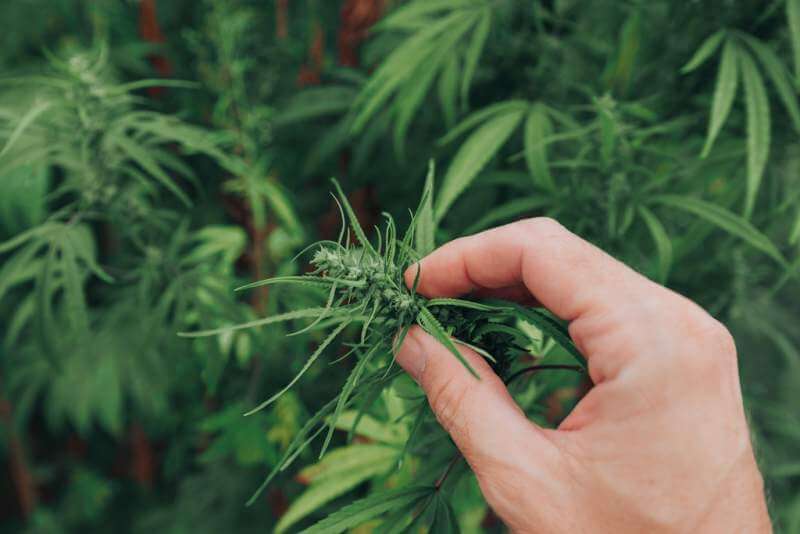Compared to almost any other industry in the UK, the CBD industry is a new one. It is not often that we get to see a new industry grow from infancy and blossom into a flowering, thriving and ever-growing sphere of CBD, but along with the positives, there are also obstacles.
One of the biggest problems that the world of CBD faces is in the fact that it is always changing and laws all around the world find it difficult to keep up to date with the leaps forward that it is taking.
Even with regards to the legality of CBD, we still have many countries around the world where CBD is not legal to buy, sell or consume. A lot of countries still cannot distinguish between all cannabis derived products and CBD products, meaning that anything that is made from cannabis – whether it is hemp or not, CBD rich or not, or includes THC or not, are treated in the same way.
With the growth of the internet, the world is now very small, and this presents a problem when it comes to advertising – especially for something as contentious and misunderstood as CBD. In the online world, it is difficult to police who can and can’t see adverts and products, so platforms can get nervous about the legalities of allowing the advertising of something that is potentially illegal somewhere in the world.
CBD in the UK

what is CBD is a compound that is naturally found in the cannabis plant. It can be extracted from the plant along with a varying degree of the other compounds and this extract is then turned into CBD products such as CBD oil drops, CBD vape juice, CBD edibles and CBD topicals.
CBD is taken by many people across the UK, the USA and the world, benefitting from its properties such as boosting general health and well-being, helping with anxiety, pain relief and many other factors. CBD has a range of health benefits which could help people all over the world, although not everyone has legal access to them.
In the UK, the law currently stipulates that CBD or cannabidiol itself is legal. However, it is important that the product doesn’t contain any THC or Tetrahydrocannabinol, as this is the compound from the cannabis plant which can make you high.
In the UK, as long as the level of THC is below 0.2%, CBD products are legal to buy, sell and consume. We are seeing the number of people who are buying CBD products rocketing across the nation as it becomes increasingly easy to get hold of.
CBD products can be bought in your high street health food shop, online and can even be bought in cafes and infused into food.
When it comes to advertising, however, things get a little more complicated.
CBD and Advertising
 According to the ASA (Advertising Standards Authority) – the organisation who regulate advertising in the UK, as it stands, the way that CBD products can be advertised depends on how the advertiser classifies their product themselves. Although this might sound simple, it is important to get this right as each classification has its own rules and regulations, which are down to scrutiny from regulatory bodies.
According to the ASA (Advertising Standards Authority) – the organisation who regulate advertising in the UK, as it stands, the way that CBD products can be advertised depends on how the advertiser classifies their product themselves. Although this might sound simple, it is important to get this right as each classification has its own rules and regulations, which are down to scrutiny from regulatory bodies.
There is the possibility that the CBD product can be classified into one of four categories in the UK at the moment:
- Illegal Substances – If the product contains over 0.2% of THC, a special license will be required to be able to sell it. If there is no licence it will be deemed as illegal and not possible to advertise.
- Medicines – There are some medicines which include CBD, and which have been granted a specific medical license. The Medicines and Healthcare products Regulation Agency (MHRA) are the people who regulate medicines in the UK and their guidelines say that in order to have a CBD product marketed as being medicinal, you must have a licence from them. Without this licence no medicinal claims can be legally made.
- Novel Foods – EU regulations at the moment state that if the CBD product is non-medicinal, it could be registered as a ‘Novel Food’. A Novel Food is a food that hasn’t typically been eaten by people in the EU before 2016 – and therefore doesn’t have much of a history of consumption. This refers to ‘new foods’ or foods from other parts of the world which we haven’t seen normally in Europe before. They do require a safety assessment and authorisation before they can be categorised as a Novel Food.
The EU have recently clarified that many CBD extracts can be categorised as a Novel Food, and the FSA (Food Standards Agency) have more information about this.
This means that CBD products are going to have to pass the EU authorisations before they can be advertised. - Food or Food Supplement – CBD products can often be classified as a ‘food’ or ‘food supplement’. These are also bound by strict rules about what claims can be made with regards to CBD products in terms of their benefits to our health. Again, they may not claim that they have medicinal qualities, just that it Is useful as a food supplement.
Where to Advertise
 When it comes to finding places to advertise CBD products, things can be tricky. It is important that any medicinal claims that are made a backed up and legal, but even still, marketers can run into problems.
When it comes to finding places to advertise CBD products, things can be tricky. It is important that any medicinal claims that are made a backed up and legal, but even still, marketers can run into problems.
There are some people who still see the link between CBD products and illegal marijuana and would prefer themselves not to allow CBD advertising. However, taboos are being broken and people are becoming more open to allowing the advertising of CBD products.
Although in the UK, it is generally accepted that (legal) CBD products can be advertised in all the normal channels, when it comes to online advertising, things are very different.
Social media can be a highly effective place for advertising but currently Facebook and Instagram (who are owned by Facebook) don’t allow the advertising of CBD products – regardless of the location of the seller, or the location of the targeted readers.
Google, however, will allow websites to be found through their search results, meaning that it is important to get a good website which ranks highly in the search engine search results for products to be found.
As the world tries to get its head around all things CBD and cannabis, we are seeing laws, rules and regulations changing all of the time with regards to how to advertise CBD products.
It is important for CBD advertisers to keep up with the changes in the laws no matter where you are in the world to ensure that you are covered legally in what claims that you are making, to be accurate, honest, and legal.
